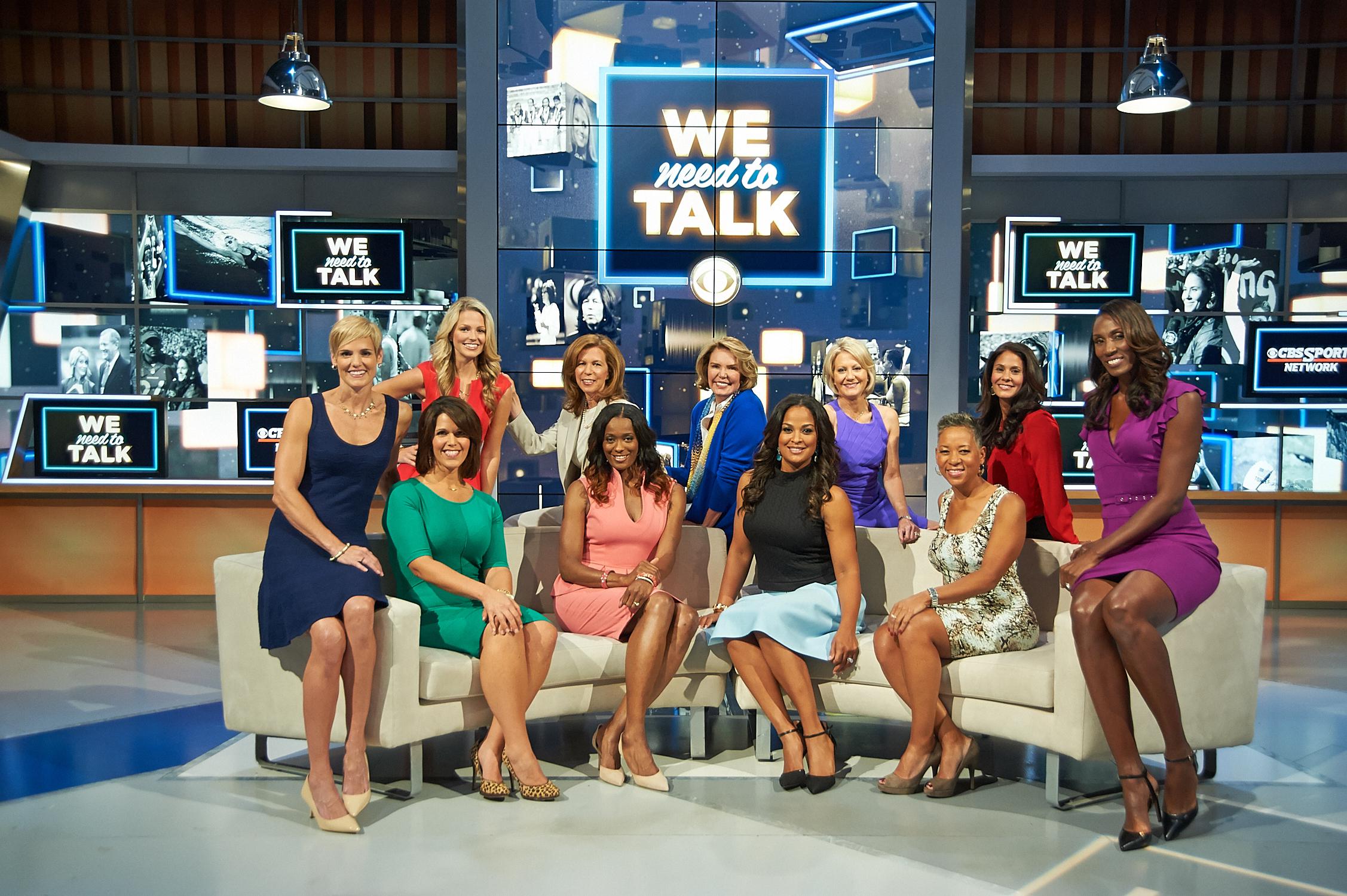Midway through last night’s premiere of We Need to Talk—CBS Sports Network’s new hour-long weekly talk show that’s produced and directed by women, and exclusively stars female athletes, journalists, and commentators—WNBA player Swin Cash sat on the set’s couch and offered her opinions on domestic violence in the NFL. It was unfair to Janay Rice, she said, for the media to constantly replay the video evidence of her abuse on national television, while criticizing her for failing to respond to that abuse in the correct way. “Why is it OK to shame the victim?” Cash asked. When Cash herself was abused by a partner, she said, she was allowed to “deal with it privately,” but even then, she feared the sting of public scrutiny. No wonder we’re living in a country where “women don’t speak up.”
Lisa Leslie (three-time WNBA MVP, four-time Olympic gold medalist) respectfully disagreed. When a victim of domestic violence has “a voice” and “an opportunity,” she said, she has an obligation to advocate for herself. After Leslie’s fiancé and the love of her life “hit me, beat me, choked me,” she said, she knew that “this is the end.” She left him barefoot with just a pair of keys in her purse, and she wants young girls to know that they can do it, too. “You don’t have to be married,” she said. “You should not be in a situation where you could be hit.”
“That’s great, Lisa. That’s for you,” Cash countered. But domestic abuse “is psychological,” too, and not every woman is as capable as Lisa Leslie is of leaving an abuser. “I’ve never talked about this publicly,” Dara Torres (world-record-holding swimmer, 12 Olympic medals) chimed in. Torres said she initially didn’t see herself as a domestic abuse victim because her partner controlled her verbally and psychologically, not physically. But when she started discussing the issue before the show aired, her co-hosts implored her: “Don’t you dare downplay mental abuse.” Now she sees that abusers can use a variety of tactics to keep women in “relationships you don’t deserve.”
For the past several weeks, male sports commentators, journalists, and retired athletes have offered round-the-clock pontification on the NFL’s domestic violence problem (aided by the occasional appearance of a woman). What more was there to say? Not much, until We Need to Talk got three of America’s most accomplished female athletes on the same couch to speak frankly about their experiences as domestic violence victims—at least one of them speaking up for the first time ever—within 30 minutes of kick-off.
The show’s silly name and its all-female panel have led some commentators to question whether it’s just a gimmick. Maybe, but it also demonstrates that the extreme dominance of men on all other sports talk shows is itself an absurd contrivance. The show’s deep roster of rotating female talent—in addition to Leslie, Cash, and Torres, We Need to Talk features legendary female sportscaster Lesley Visser, former Oakland Raiders CEO Amy Trask, boxer Laila Ali, and NFL Network chief correspondent Andrea Kremer, among others—reveals that other programs have been ignoring some of the sports world’s most compelling voices, or at least not asking them the right questions. Bringing one female commentator on provides a “woman’s perspective”; bringing a dozen of them together offers something much more interesting. And because the show is about sports, aired on a sports network, and staffed by some of the most experienced women in sports, it brings a depth of coverage to the topic that’s not on general-interest female talk shows like The View.
Of course, We Need to Talk can also be just as inane as all other sports shows, as when CBS sportscaster Tracy Wolfson seemed a little too impressed that Roger Goodell once made a visit to a domestic violence hotline, or when Trask advised Goodell to not try to “hire women” but instead hire “the best people,” as if the concepts are mutually exclusive. (It’s an opinion that wouldn’t have been aired on television had CBS followed Trask’s own advice.) And while the women on the show offer legitimately fresh perspectives on the topics other sports shows are covering, they could contribute even more if they focus on the stories other shows ignore—namely, stories about female athletes.
“It’s definitely not a show about women’s sports,” Trask said before the premiere. “It is a show about sports and the overlap of sports and society, hosted by women, produced by women and directed by a woman.” Still, the stories about their own experiences as female athletes can’t help but come out, and they made for some of the show’s best moments. When the women discussed Carmelo Anthony’s recent comment that he is the NBA’s “most underrated superstar,” Leslie zinged that if he really felt like he needed a championship ring, she “could loan him one” of hers. And one of my favorite lines came during a segment in which the show covered Derek Jeter’s retirement by asking its own retired athletes to reflect on their final competitions. “My last fight wasn’t very exciting,” Ali said. “I knocked a girl down. She didn’t get up.”
